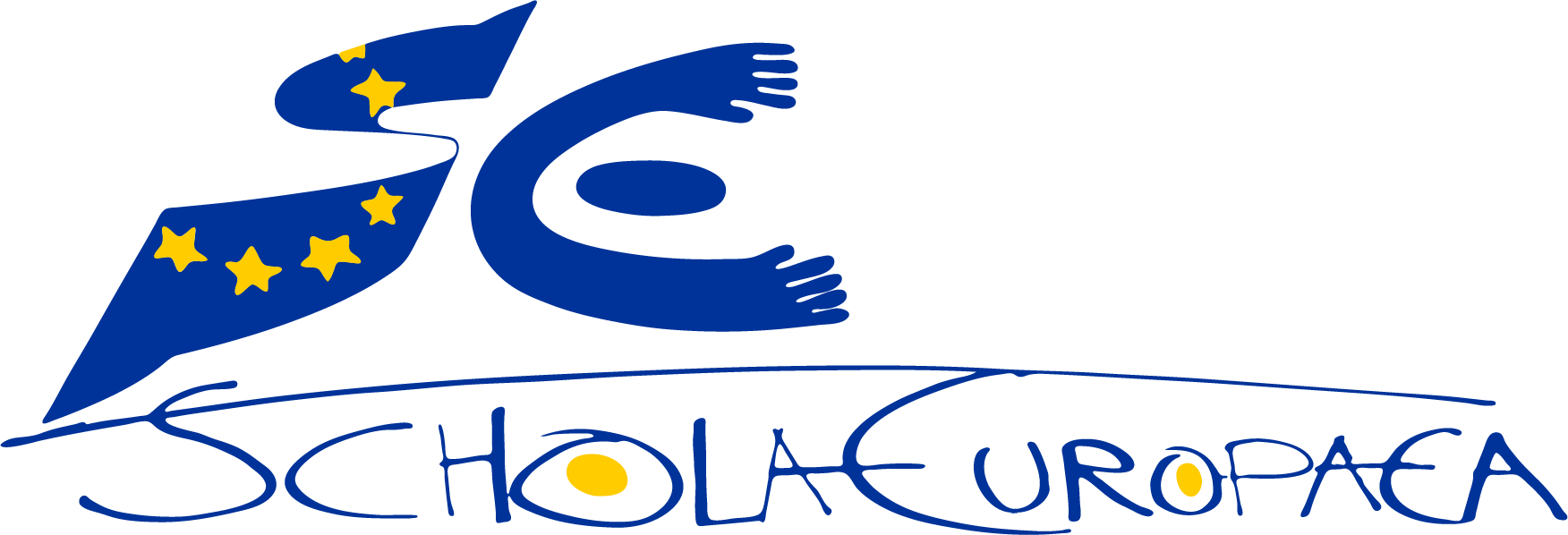Site blog
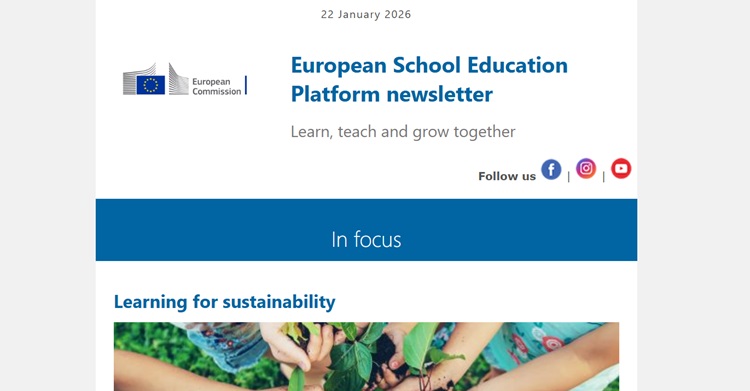
You can find the latest ESEP Newsletter here:
European School Education Platform newsletter
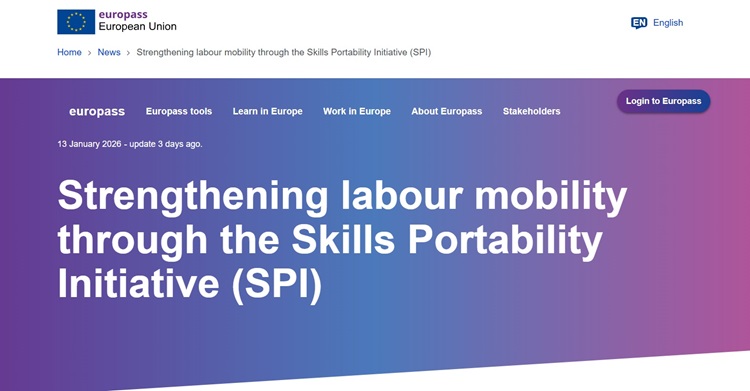
The European Commission invites workers, employers, organisations, experts and other stakeholders to share their views and experiences on the Skills Portability Initiative.
This potentially legislative initiative will explore ways to:
-
📄 Digitalise learning credentials, with possible synergies with the European Digital Identity Wallet
-
🔎 Improve the transparency of skills and qualifications
-
⚖️ Modernise recognition processes for regulated professions
-
🌐 Simplify procedures for recognising the qualifications and skills of non-EU nationals
The consultation focuses on the barriers people face today in skills portability when working and hiring across borders.
How to contribute
Stakeholders are invited to contribute by:
-
Completing an online questionnaire
-
Submitting input through a call for evidence
🗓️ Both will remain open until 27 February 2026.
Further information is available in the latest Europass article on the Skills Portability Initiative.
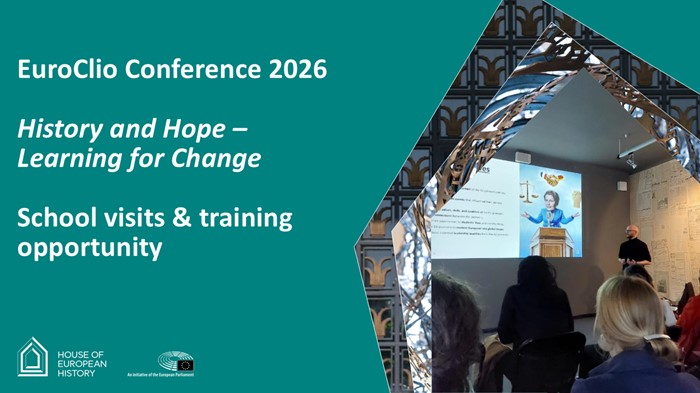
As part of the 32nd EuroClio Annual Conference for Teachers, taking place in Brussels from 26 to 29 April 2026, the House of European History and EuroClio invites motivated teachers from the European Schools to become host teachers for a school visit.
📅 When? Tuesday 28 April (9:00–11:00)
📍 Where and who? Small groups of 10 to 15 European teachers will visit local schools to exchange practices, ideas, and perspectives on teaching history, citizenship, and European values in an authentic school context.
What does hosting involve?
A light and flexible format of your choice: presenting a project, introducing your school’s approach, welcoming visitors into a classroom, offering a short tour, or engaging in a professional Q&A.
What is in it for you?
Teachers who host a school visit receive free access to the full four-day conference, including:
- High level professional development
- Keynote lectures
- Interactive workshops
- Panel debates and peer exchange
- A rich cultural programme
🔗 You can find more information in this PDF.
If you are interested in becoming a host teacher, please register via this link or QR code by 16 January 2026.
An online information session will also be organised for those who would like to know more.
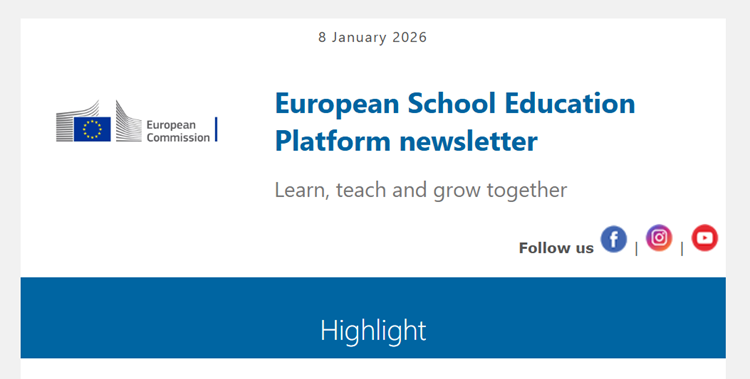
You can find the latest ESEP Newsletter here:
European School Education Platform newsletter
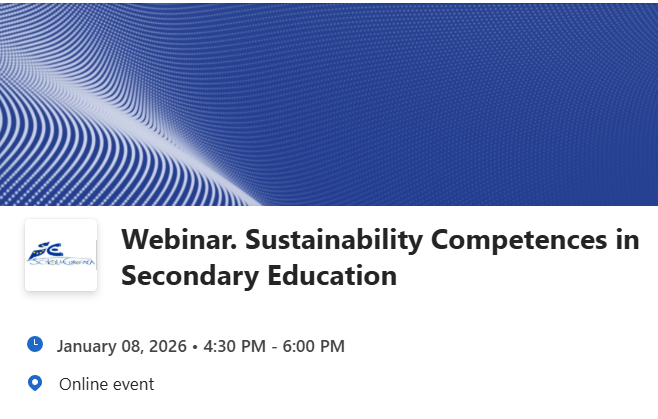
Details
We are delighted to invite you to a webinar, to introduce you to:
- The international scientific journal Sustainology: an overview of its purpose and how it can be used across the entire European Schools system.
- Key features of the new course “Sustainability and Active Citizenship”.
- Practical ways for teachers to integrate sustainability into everyday classroom practice.
Learning Outcomes
By the end of the seminar, participants will be able to:
- Understand and use “Sustainology” journal
- Identify ways in which the journal can support teaching, student projects, and whole-school sustainability initiatives across the European Schools system.
- Integrate Sustainology as a pedagogical resource to promote interdisciplinary learning and student engagement.
- Apply key elements of the course “Sustainability and Active Citizenship”
- Design learning activities that reflect the course’s focus on critical thinking, civic engagement, and sustainable practices.
- Implement sustainability in everyday classroom practice
- Develop simple, replicable activities that encourage students to think and act sustainably.
📅 When? Thursday, 08 January 2026, 16:30 - 18:00 CET
📍Where? Online
📌 Register HERE
🕒 Duration: 1.5 hour
🎯 Target group: Teachers across the EU (secondary), Counselors
Presented by: Eleni Touliopoulou, European School EEB3
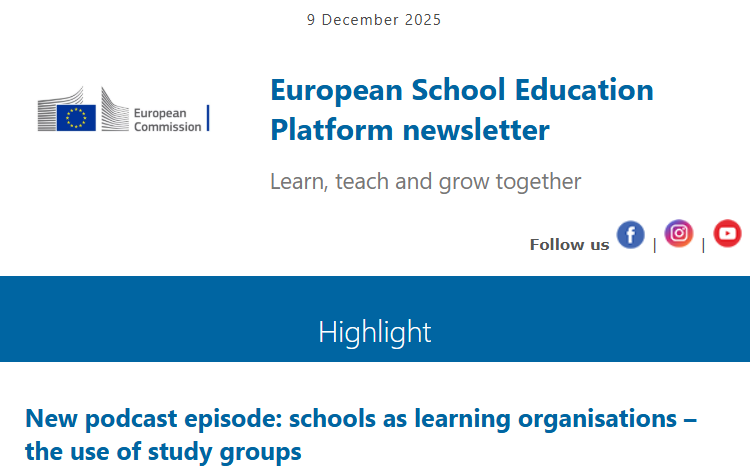
You can find the latest ESEP Newsletter here:
European School Education Platform newsletter

Lessons from the European Commission Working Group Schools: Learning for Sustainability
🌍Webinar
📅 Date: 16 December 2025
🕚 Time: 11:00–12:30 CET
🔗 Please register -> HERE
Join for the European Commission Working Group Schools: Learning for Sustainability webinar - a dynamic and celebratory event that brings together educators, policymakers, researchers, and partners from across Europe and beyond.
Through plenary sessions, peer-learning visits, and webinars, the Working Group has explored how sustainability can be meaningfully integrated into schools - from leadership and curriculum to school culture and community engagement. This event will share key learning, evidence, resources, and practice examples.
🎙️ What to expect:
- hear insights from Working Group members on how schools across Europe are embedding sustainability within teaching, learning, and governance.
- explore innovative examples and findings from the group’s peer-learning activities, policy initiatives, and evidence-based projects.
- learn about key resources and how to meaningfully integrate these in your contexts.
- engage in interactive discussion on how education systems can prepare learners for a rapidly changing and interconnected world.
📖 About the Working Group:
The Working Group Schools: Learning for Sustainability promotes mutual learning and exchange among:
- national coordinators and experts from ministries of education and/or environment working on learning for sustainability; Education for Sustainable Development (ESD); environmental, digital and citizenship education.
- NGO representatives, non-formal educators and social partners; as well as,
- international partners such as UNESCO, UNECE, OECD and the European Training Foundation.
💡 Don’t miss this opportunity to discover what’s next for learning for sustainability in Europe and how you and your organisation can be part of the journey.
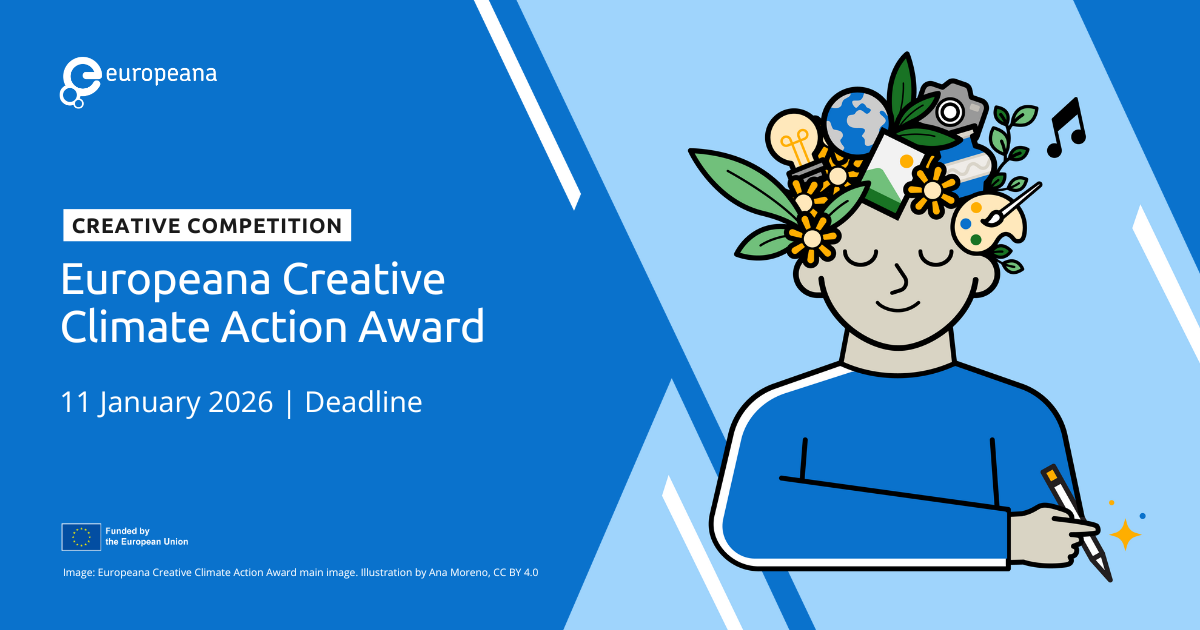
Europeana Creative Climate Action Award
The first Europeana Creative Climate Action Award invites you to write a new short story or poem inspired by cultural heritage content on the theme of climate action. Europeana is looking for up to 500 words of creative writing, fiction or poetry written in English and inspired by one or more of the images in our Europeana Creative Climate Action Award gallery, which has been curated by the Europeana Climate Action Community.

The 3rd Teachers’ Forum of the European Schools (TFES 2026) is planned to take place in Riga, Latvia, on 13–14 April 2026.
Further details, including the Call for Applications for workshop facilitators, will be published on this page soon.
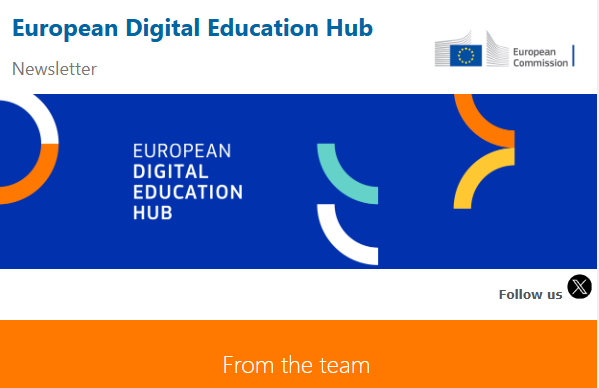
You can find the latest EDEHub Newsletter here:
European Digital Education Hub newsletter - November 2025
